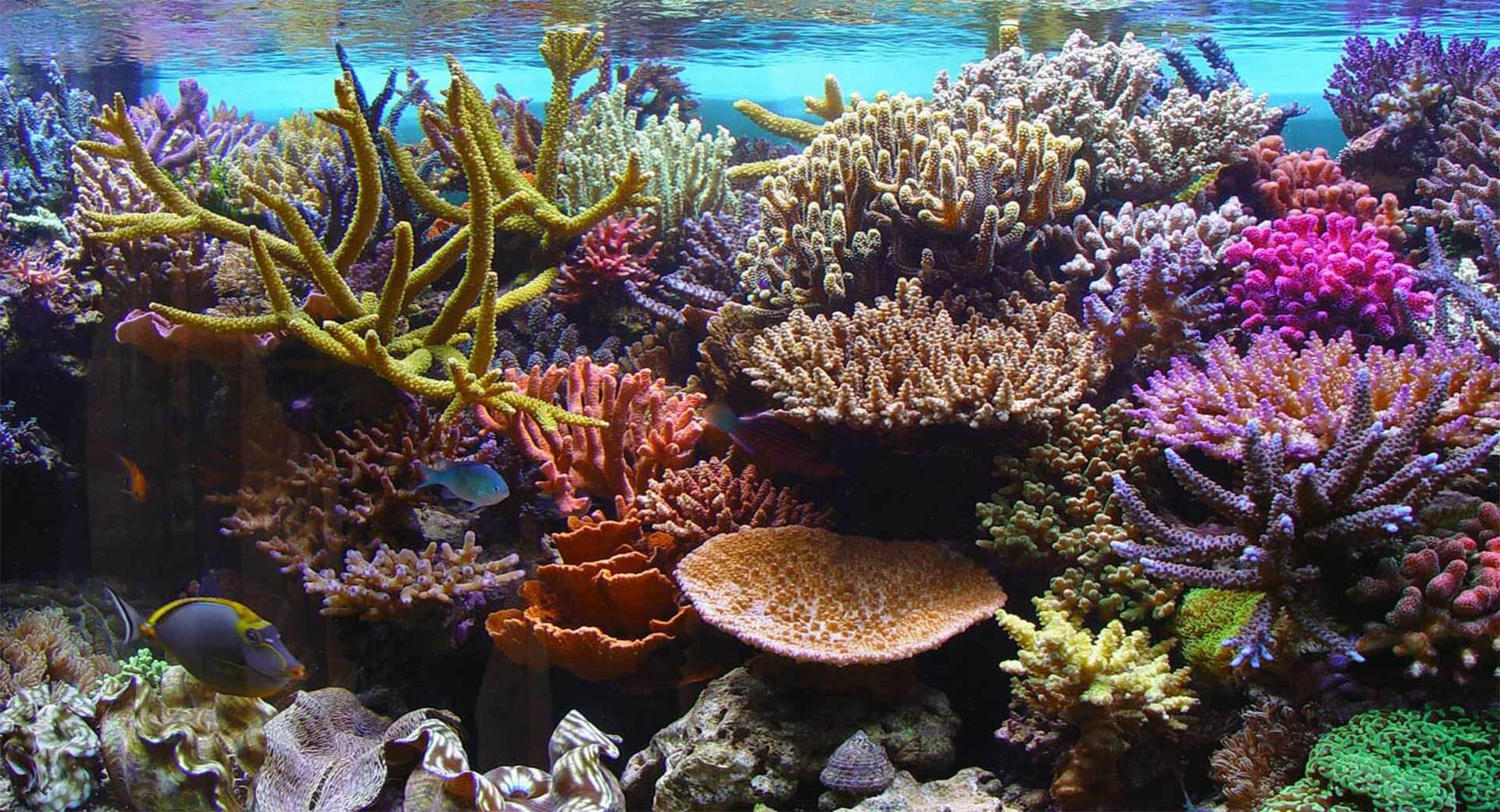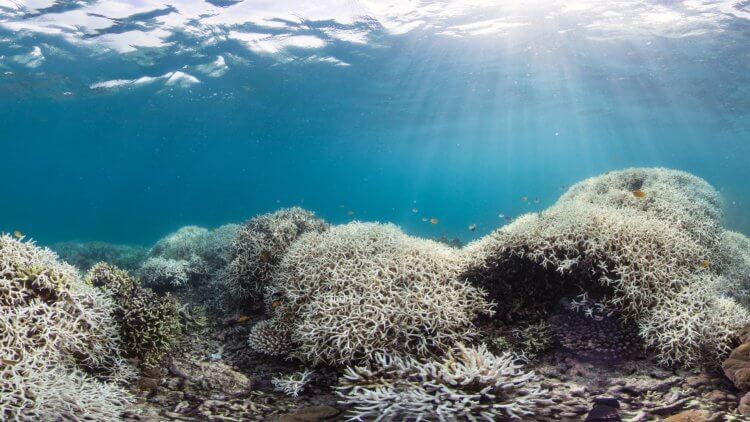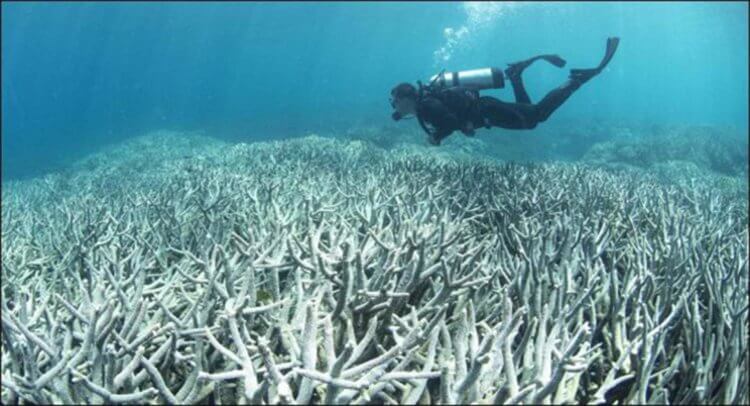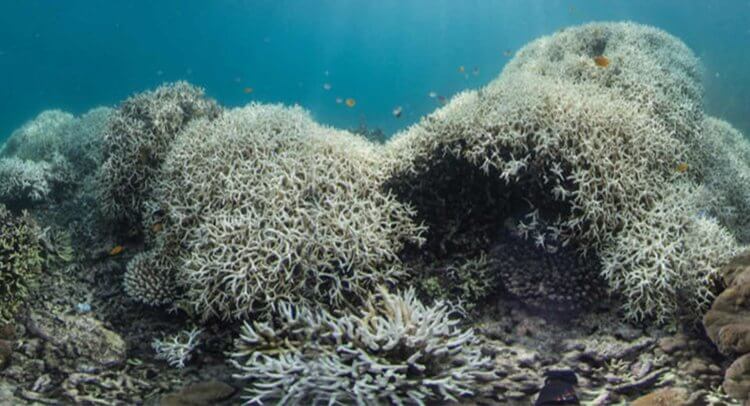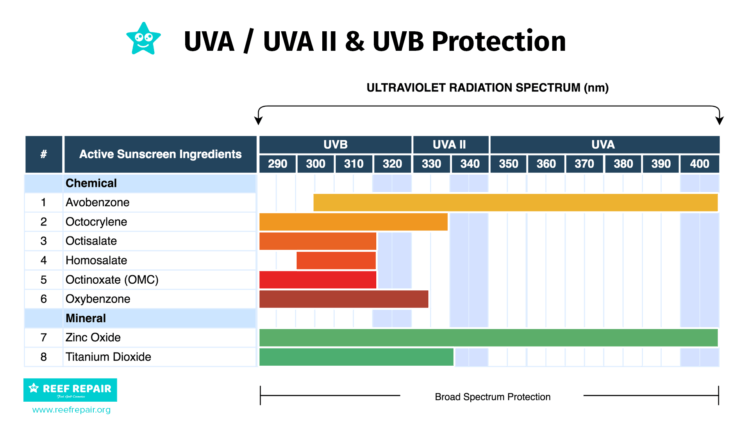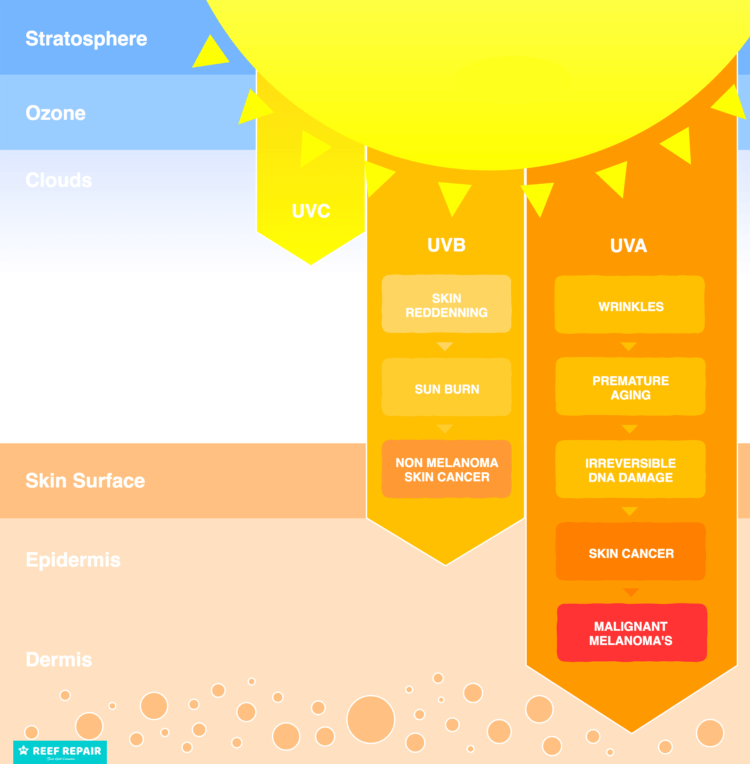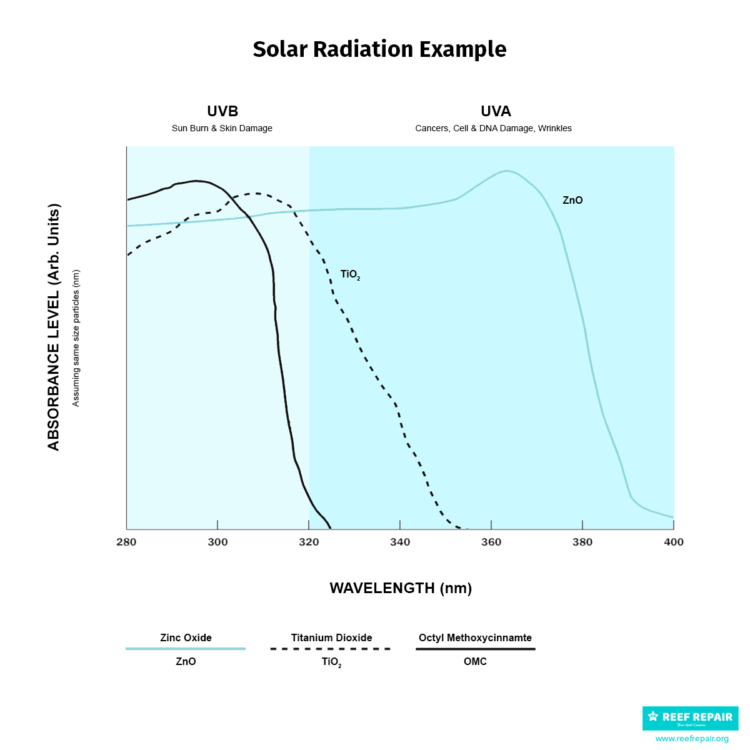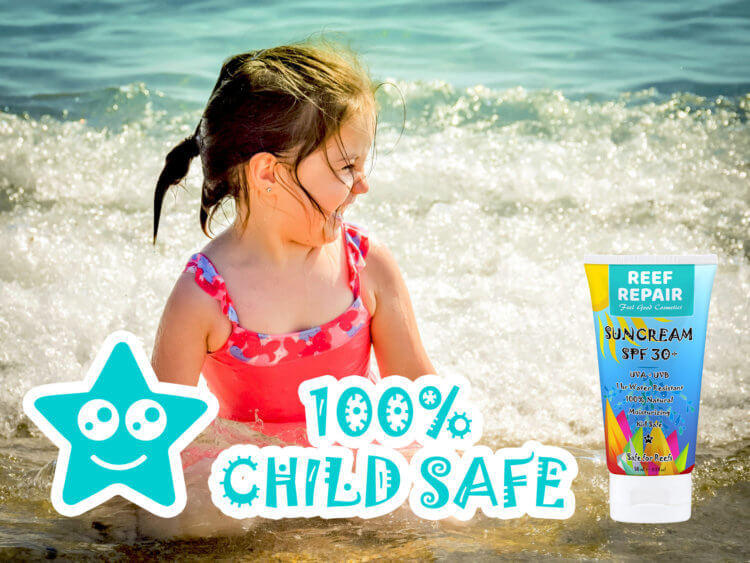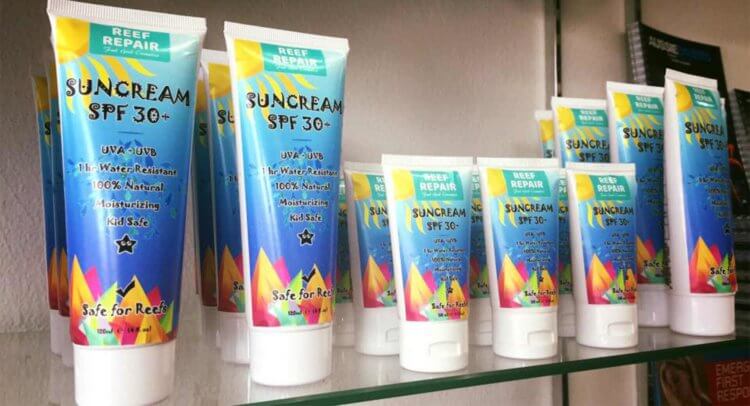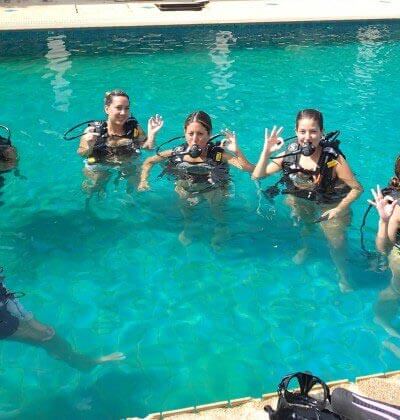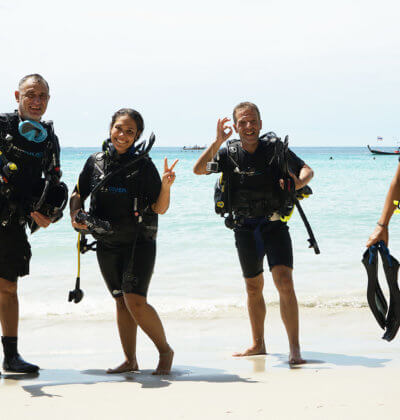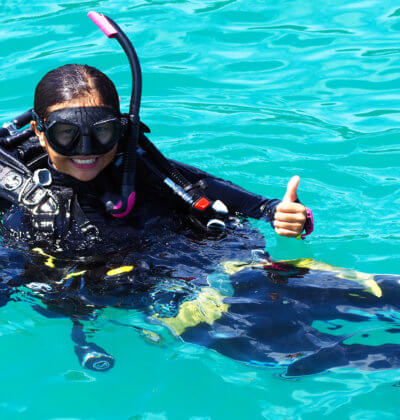Use Reef Safe Sunscreen In Phuket, Helping Reduce Damage To Coral Reefs In Thailand
Recently there has been a great deal of media hype around the link between chemical sun creams and severe damage to coral reefs. You may have also seen that Hawaii has banned chemical sunscreen containing Oxybenzone and Octinoxate to help prevent any further harm to their delicate coral reef’s, but what many people are still asking is…
Which chemical sunscreen’s and sun cream’s damage coral reefs?
Like most things the answer is not a simple one, what you need to know as a scuba diver is that Oxybenzone, Octinoxate or other chemical active ingredients used in nearly all chemical sunscreens, contribute to coral death and drastically exacerbate coral bleaching events caused by increased water temperatures or increased environmental pressures. That is why it is now critically important when visiting oral reefs as a scuba diver or snorkeler that we use a reef safe sunscreen.
What you might also not know is that in the last 30 years nearly 70% of the world’s coral reefs (the largest eco system on this planet) has been destroyed or severely damaged. This partly thanks to a combined effort from badly managed tourist practices, extensive climate change which has heated the oceans to boiling point and the toxic build up of coral reef killing chemicals in the eco-system. Due to the massive popularity rise of scuba diving and snorkeling in recent years, we have greatly improved the efficiency and devastation that is coral bleaching events.
In another 30 years time it is entirely possible that we may have no Corals left at all, divers and ocean going tourists truly need to do something now to help change that future. One of the best things you can do right now as in this very minute, is to switch to a 100% natural reef safe sunscreen or sunscreen that uses Zinc Oxide (non nano), as the active ingredient.
More About Oxybenzone & Reef Toxic Chemicals
Ozybenzone and Octinoxate, now banned in Hawaii, are chemicals used in sun creams to provide protection from the sun. Sadly what we did not know until very recently is that Ozybenzone and other synthetic chemicals common in our sunscreen, have a nasty habit of damaging and altering the DNA of corals which prevent the coral from feeding, growing and re-producing correctly. This results in massive coral bleaching events and the death of famous coral reefs.
It is clear today that Ozybenzone, Octinoxate and other active chemical ingredients in sunscreens contribute to coral bleaching when the water temperature gets too high. These chemicals also cause a very high mortality rate in young corals thanks to the damage they do to the corals DNA structure. Young or recovering corals exposed to Oxybenzone and Octinoxate are likely to not survive, even if the water temperatures return to normal. This creates a massive double whammy for corals when divers covered in toxic sunscreens visit our already super fragile Coral Reefs here in Phuket.
It is also not just corals that these chemicals affect; Oxybenzone also causes genetic damage, neurological and reproductive damage to other marine life and aquatic species. These synthetic chemicals help to shut down the reproductive process in marine life exposed to it. That means any damage done to the reef through other means (tourists, fishing, boat anchors) is exacerbated because the cleaner fish the reef relies on for cleaning will simply not come back in the required numbers as they can’t produce healthy offspring.
Lots of things kill coral reefs but we know that Oxybenzone stops it from ever coming back! Craig Downs, Forensic Ecotoxologist
Ingredients To Avoid In Your Sunscreen
If you want to help save coral reefs around the world than the easiest thing you can do right now from your armchair is to stop using sunscreen or sun care products with any of the following ingredients, if they are in your sun cream in any percentage you should look for an alternative that uses only natural mineral ingredients.
- Oxybenzone
- Avobenzone
- Octocrylene
- Homosalate
- Octisalate
- Octinoxate
Simply put, do not use sunscreen or sun cream with any of those chemical ingredients.
As you can see here, not only are those chemical ingredients toxic to our corals, but many do not protect you from harmful UVA radiation.
Protect yourself and your family by using reef safe sunscreen with high zinc oxide percentages. Speaking of natural minerals like Zinc and Titanium…
Ingredients To Be Wary Of In Your Sunscreen
Not all natural ingredients are created equal. One common natural sun cream ingredient you will run into when choosing a natural sun cream is Titanium Dioxide.
Titanium Dioxide has recently been found to cause cancer in rats, which was then linked to studies of respiratory track cancer in humans exposed to levels of Titanium Dioxide dust in a working environment. This might not apply to sunscreen you rub on your skin, but why take the risk?
Simply put, we advise that you do not use natural sunscreens with Titanium Dioxide in them because Titanium Dioxide is currently under scrutiny due to potential health concerns if you are regularly exposed to it.
Plus Titanium Dioxide is just generally not that good at giving you the full range of protection from the sun that you need in tropical conditions.
Ingredients Safe For You And Coral Reefs
Currently there is only one completely safe and verified ingredient which does not harm coral reef and has a proven track record for public safety and UV sun protection. That ingredient is Zinc Oxide which we have mentioned already in this article.
Zinc Oxide is the safer ingredient for you as a person because it doesn’t have any of the cancer risks currently associated with Titanium Dioxide. Zinc Oxide also has a slight benefit over Titanium Dioxide in that it has better broad spectrum protection meaning it will protect you against both UVB rays (sun burn) and also protect you against harmful skin and DNA damaging UVA rays.
Zinc Oxide should be the only active ingredient in your sun creams for your own safety, that of your family and for the safety coral reefs.
Help Us Save Coral Reefs From Extinction
An estimated 14,000 tons of chemical sun cream and sunscreen wash into our oceans every year and we now know this has a massive and detrimental effect on our coral reefs. All natural reef safe sun creams typically has an active ingredient like Zinc Oxide which is a natural mineral. Zinc Oxide does not cause harmful effects in our oceans and causes no damage to coral reef or marine life.
Aussie Divers have long understood the importance of keeping our underwater world free from harm, we want to see a change in behavior to try and eliminate some of the damage done to the reefs, that’s why we wrote this article.
The other thing we have done recently is buy a plenty of Reef Repair 100% natural sun cream, we are stocked up on Reef safe sunscreen in our shop and it comes highly recommended by divers all over the world.
Make the change to reef safe sun creams & sun care products and help save the worlds coral reefs, simple as that.
Would You Like To Dive With Us?
Dive with Aussie Divers Phuket and see why we have nearly 2,000 5 star reviews on TripAdvisor, we don’t like to brag but we are pretty dam good at making sure you have a great day scuba diving in Phuket.
Posted in Helpful Diving Info on .

